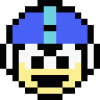So my question is, is this enough?
You have "eager itch" !
It's like a back itch: You can satisy it now with your finger nails but no guarantee of being satisfied or you can prepare by going to grab a proper back scratch implement which is sure to do the job.
... purely your choice... If you are superman enough to take the shortcut, then go ahead!
So, when do I cross the line to start making my own games?
My opinion is when you have a broad enough foundation, competent in each major area of the target game of your dreams, then you are ready to make your own games. The sooner you rush into them, then the more the inferior coding will be in those first several original games.
I know an expert C++ and another expert C# software engineer, each leading teams - you know: lead programmers. They urge that learners progress carefully to avoid bad programming habits. Bad habits take much longer to correct than the time taken to progress in orderly fashion. This is standard for highly skilled professions.
I want to make a rogue rpg. Not a big one, just a mildly small, basic one. Then I would improve from there. Do you think that's feasible? Or maybe I should knock off some more games, get some more experience? What are your thoughts
If it is only a hobby, then do what your conscience and desire lead you to do.
If you aspire in the gaming industry, then you should search for orderly progression in your learning according to clear long term goals, making changes as needed in due time. Everything which you use in the first five to ten games will be a basis for your future programming.
Seek variety
now in the learning stage while you have the freedom of choice and no deadlines! You are laying the foundation upon which much will be built in the future! Once you start building on that foundation, making changes will be possible but much more difficult such as correcting bad programming habits. Lay a good basic foudation of knowledge
and understanding!
Clinton









